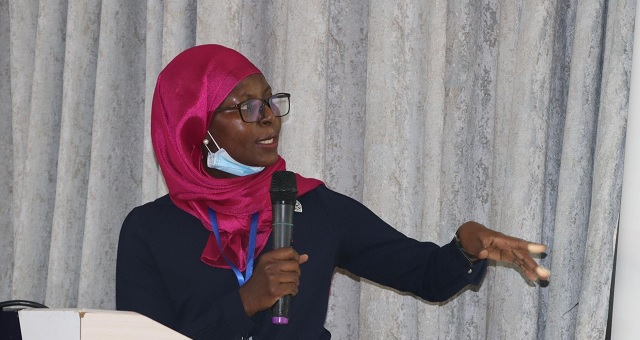
Kampala, Uganda | THE INDEPENDENT | While labour externalization is on an increase in Uganda, experts have pointed out that the country lacks a return policy that supports them to be able to sustain themselves in the economy when they return home.
Agnes Igoye, the Deputy National Coordinator, Prevention of Trafficking in Persons in the Ministry of Internal Affairs says that while workers are coached about their expectations abroad, they are never briefed on what to do when they return.
She was speaking at a meeting organised by the Economic Policy Research Center (EPRC) where results of a project aimed at identifying strategies for integrating labour externalisation in the agro-industrialization agenda were released.
Currently, according to salary ranges provided by the Uganda Association of External Recruitment Agencies-UAERA, unskilled youths who seek employment abroad are paid way higher than many skilled jobs in the country. For instance, domestic workers in Saudi Arabia earn between USD225 and 500, factory workers in Qatar earn between USD350 and 700, whereas security guards in the UAE are paid between USD 300 and 900.
As a result of these attractive offers to Ugandans, the government gets more remittances from these countries. For instance, the Annual Personal Transfers survey of 2017 found the Middle East to be the second-highest remitter of funds to Uganda at 28.6 percent, after Africa at 29 percent.
But Igoye says that people that go to the diaspora are being pushed because of the high levels of unemployment in the country but even when they return, even though the government benefits from the remittances, they are never tracked to see what they do back home.
Dr Madina Guloba, a researcher based at EPRC says that while the government is interested in the money that these people bring in, they should find a way of interesting them in the country’s development agenda and attract them to gaps in the economy that they can fill. She says some of the workers abroad acquire skills while away which can be harnessed when they return.
Researchers at EPRC sampled the fish and cotton value chain and identify opportunities for women and youth at the marketing end of the Nile Perch. They found most of the male youth at 97 percent, to be involved in fishing production and carrying the catch from boats to weighing stations yet there are better opportunities if they have funds to engage in value addition.
She says unfortunately, people don’t know where to go or who to consult on areas in agriculture where investment is needed even as some have worked in clothes factories abroad and acquired the skill.
Worse, she says the government cannot notably track whoever is working abroad as the only available database is that of those going to the Middle East.
Commenting about this, Usher Owere, the Chairman General of the National Organisation of Trade Unions (NOTU) said before going into encouraging returnees to invest in agriculture, there’s a need to organise labour externalisation as most of the task force and structure was adopted later as a postmortem when the government realised people were being moved anyhow.
He says there’s a need to create an independent ministry to handle labour and social security affairs.
*****
URN
 The Independent Uganda: You get the Truth we Pay the Price
The Independent Uganda: You get the Truth we Pay the Price



